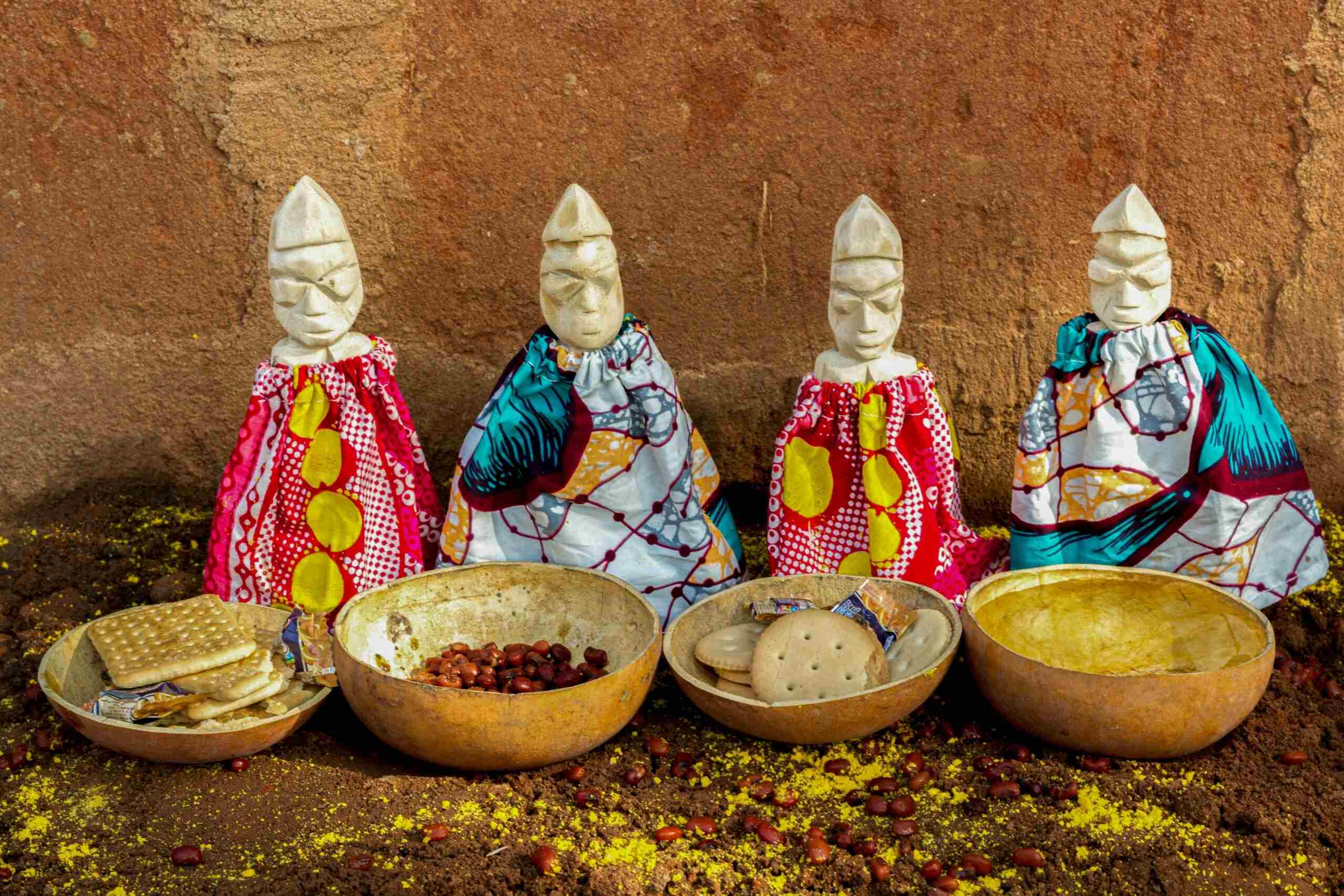
Vodun, often called Voodoo, is a religion with deep roots in West Africa. It’s not just about spells and dolls; it’s a rich tradition blending spirituality, culture, and community. Originating from the Fon and Ewe peoples, Vodun has spread to places like Haiti, Cuba, and New Orleans, adapting to local cultures along the way. Did you know that Vodun involves honoring spirits called Loa? These spirits act as intermediaries between humans and the divine. Contrary to popular belief, Vodun is not about dark magic but focuses on healing, protection, and harmony. Ready to learn more? Let’s dive into 28 fascinating facts about this misunderstood religion.
Origins of Vodun
Vodun, often referred to as Voodoo, is a fascinating religion with deep historical roots. Let's explore some intriguing facts about its origins.
- Vodun originated in West Africa, particularly among the Fon and Ewe peoples of present-day Benin and Togo.
- The word "Vodun" means "spirit" in the Fon language.
- This religion was brought to the Americas by enslaved Africans during the transatlantic slave trade.
- Vodun has influenced other Afro-American religions, such as Haitian Vodou, Cuban Santería, and Brazilian Candomblé.
Beliefs and Practices
Vodun is rich in rituals, ceremonies, and a unique belief system. Here are some key aspects of its practices.
- Vodun practitioners believe in a supreme creator called Mawu or Nana Buluku.
- Spirits, known as Loa or Orisha, act as intermediaries between humans and the divine.
- Rituals often involve drumming, dancing, and singing to invoke the spirits.
- Offerings, such as food, drinks, and animal sacrifices, are made to appease the spirits.
- Vodun ceremonies can include possession, where a spirit temporarily inhabits a person's body.
Symbols and Objects
Vodun uses various symbols and objects in its rituals. These items hold significant meaning and power.
- Veves are intricate symbols drawn on the ground to summon specific spirits.
- Gris-gris are amulets or charms used for protection or to bring good luck.
- Dolls, often misunderstood, are used to represent spirits or people in rituals.
- Sacred drums, called "tambours," are essential for communicating with the spirits.
- Altars, known as "hounfours," are set up to honor the spirits and ancestors.
Misconceptions and Stereotypes
Vodun has been subject to many misconceptions and stereotypes, often fueled by media and popular culture.
- Contrary to popular belief, Vodun is not about black magic or evil spells.
- The portrayal of Vodun in movies and TV shows is often inaccurate and sensationalized.
- Vodun is a religion of healing, community, and connection with the divine.
- Practitioners use their knowledge for good, such as healing the sick and protecting the community.
Vodun in the Modern World
Vodun continues to thrive and evolve in today's world. Let's look at its contemporary relevance.
- Vodun is officially recognized as a religion in Benin, where it is celebrated with an annual festival.
- Many people in Haiti practice Vodou, a syncretic religion combining Vodun with Catholicism.
- In New Orleans, Louisiana, Vodun has blended with local culture, creating a unique tradition.
- Modern practitioners often incorporate elements of other religions and spiritual practices.
- Vodun has gained interest and respect from scholars and spiritual seekers worldwide.
Famous Figures and Stories
Vodun has a rich history filled with notable figures and captivating stories.
- Marie Laveau, known as the Voodoo Queen of New Orleans, was a famous Vodun practitioner in the 19th century.
- The Haitian Revolution, which led to Haiti's independence, was influenced by Vodun ceremonies and leaders.
- Papa Legba, a prominent spirit in Vodun, is often depicted as a wise old man who guards the crossroads.
- Baron Samedi, another well-known spirit, is associated with death and the afterlife.
- The story of the zombie, popular in horror fiction, has roots in Haitian Vodou beliefs about the undead.
Final Thoughts on Vodun
Vodun, often misunderstood, holds a rich tapestry of history and culture. Its roots trace back to West Africa, blending spirituality, community, and tradition. Many people associate Vodun with negative stereotypes, but it's a belief system that emphasizes harmony, respect for ancestors, and the interconnectedness of all life.
Understanding Vodun requires an open mind and a willingness to look beyond misconceptions. It's not just about rituals and ceremonies; it's about a way of life that values balance and reverence for the unseen forces that shape our world.
By learning more about Vodun, we can appreciate its contributions to global culture and spirituality. It's a reminder that every belief system has depth and meaning, deserving of respect and understanding. So next time you hear about Vodun, think of it as a vibrant, living tradition that continues to inspire and guide many.
Was this page helpful?
Our commitment to delivering trustworthy and engaging content is at the heart of what we do. Each fact on our site is contributed by real users like you, bringing a wealth of diverse insights and information. To ensure the highest standards of accuracy and reliability, our dedicated editors meticulously review each submission. This process guarantees that the facts we share are not only fascinating but also credible. Trust in our commitment to quality and authenticity as you explore and learn with us.


